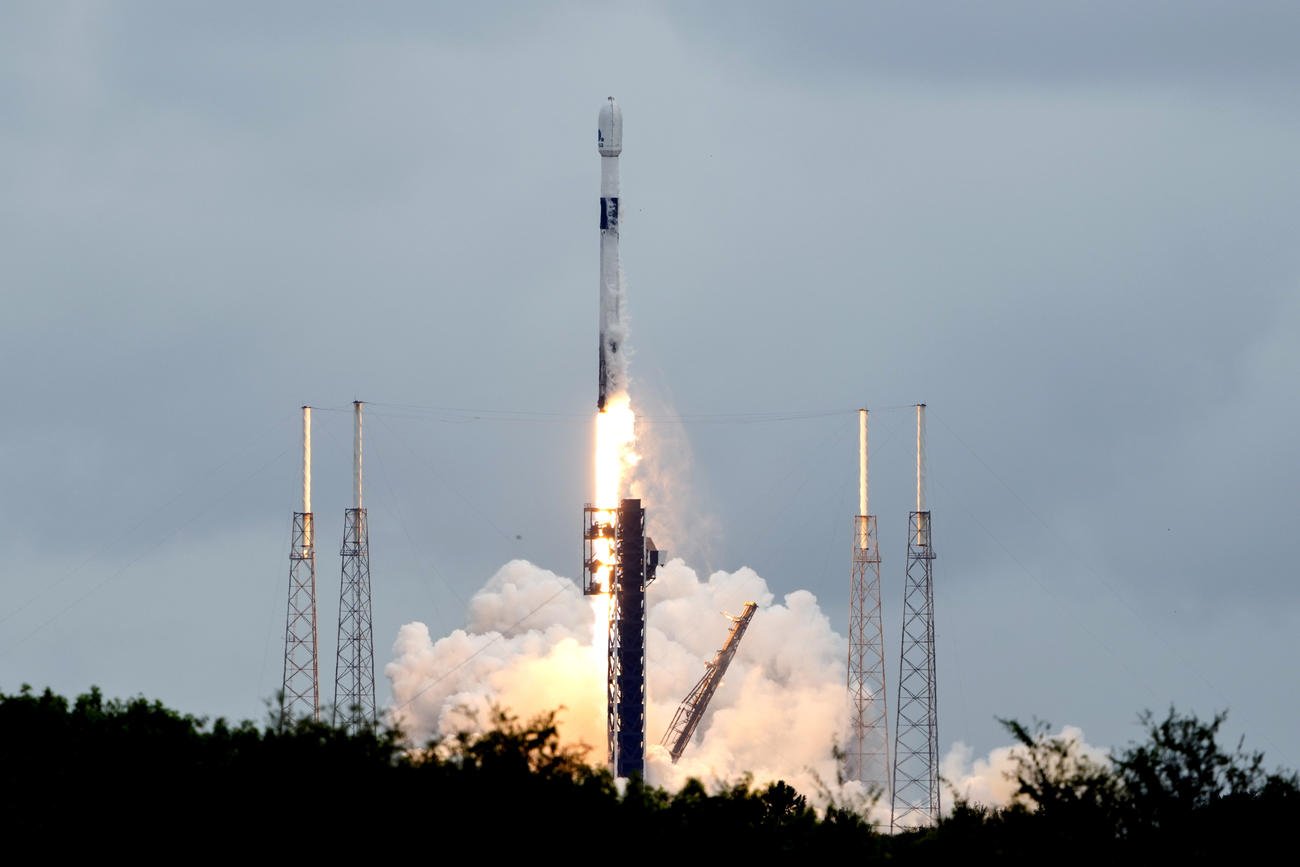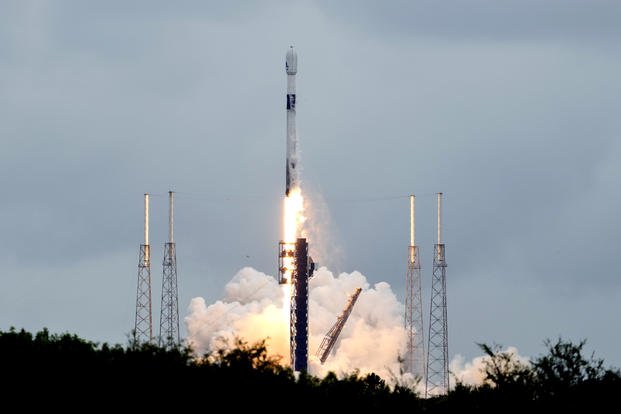

Refueling in outer space will pose a daunting challenge, as will radiation shielding and finding water on Mars.
Now Elon Musk, founder of SpaceX, has identified another obstacle standing between humankind and interplanetary travel, this one much closer to home.
On Oct. 10, the California Coastal Commission, chaired by Sonoma County resident Caryl Hart, denied the Air Force’s request for its contractor SpaceX to increase the number of rockets it can launch annually from Vandenberg Space Force Base.
Because the decision lacks the force of law, the Air Force can decide unilaterally to proceed with the launches of SpaceX’s Falcon 9 rockets. In that case the commission will have the option of suing the Air Force, deputy director Cassidy Teufel explained.
But the rejection was enough to provoke a flurry of Saturday night tweets from Musk, irate that some commissioners — foremost among them Gretchen Newsom, no relation to California Gov. Gavin Newsom — had criticized his political activities, citing them as red flags before casting their votes.
“Incredibly inappropriate,” he tweeted. “What I post on this platform has nothing to do with a ‘coastal commission’ in California!”
The man whose nicknames include “Space Karen” went on to describe the commissioners as an “utterly insufferable and misanthropic group of Karens,” and threatened to sue the agency on First Amendment grounds.
SpaceX did not reply to a request for comment Tuesday.
Space Force, a military branch within the Air Force, got the Coastal Commission’s green light in 2023 to increase SpaceX’s rocket launches at Vandenberg from six to 36. The proposal before the commission last week would have taken it from 36 to 50. Two months from now, officials said, Space Force intends to ask the commission to increase the number of launches to 100 per year.
That, at least, was the plan before the commissioners voted 6-4 last Thursday to pump the brakes on that accelerated schedule.
Among those voting no was Hart, the former director of Sonoma County Regional Parks, who was elected in January to chair the powerful state agency, whose mission is to regulate development along California’s 840-mile coastline.
She declined to comment for this story.
After resisting cooperation in earlier meetings, the Air Force agreed to take steps requested by the commission to protect the coast. Those steps include “marine debris reduction,” enhanced “biological monitoring,” improved coordination with “commercial and recreational fishing” and “sonic boom assessment and minimization.”
But underlying those environmental matters is a larger, more divisive issue.
Federal agency or private business?
As a state entity, the Coastal Commission has limited influence over Department of Defense activities on federal land. Air Force officials and SpaceX contend that the rocket launches fall under the umbrella of “federal agency activity”— and aren’t subject to the Coastal Commission’s notoriously onerous permitting process.
Hart, and the commissioners who joined her in that 6-4 vote, beg to differ.
They make the case that the launches most benefit SpaceX and its business operations, as opposed to the government. They insist that the Hawthorne, CA, based company is a private enterprise. As such, it must appear before the commission and apply for a conditional development permit.
“It is essential that SpaceX apply for a CDP,” said Hart, before the vote. “We are going to hit a wall here. There is no other way forward, in my opinion.”
While SpaceX periodically launches satellites and payloads serving various federal government agencies, the primary purpose of its launches, according to a Coastal Commission report, “is to further expand and support SpaceX’s commercial satellite internet and telecommunications network, Starlink.”
Each rocket launch puts around 21 Starlink satellites into Earth orbit, the report said.
“This network, or ‘satellite constellation,’ is now comprised of several thousand individual satellites that provide internet across the globe through a subscription service and are now equipped to support cellular phone service as well.
“Building and maintaining this system and leadership position [in those business] is the primary purpose for launches and reason for their proposed increase.”
Representing the military at the Oct. 10 meeting were Ravi Chaudhary, an assistant secretary of the Air Force, and Col. Mark Shoemaker, Commander of Space Launch Delta 30 at Vandenberg.
The commissioners took turns expressing their gratitude to those men for the work they’d put in, along with their staffs, to protect the coast.
The problem for those voting no — and some voting yes — was not with Space Force. It was with Space X, and that company’s controversial CEO.
Firebrand alternate
Sitting in for commissioner Ann Nothoff was her alternate, Newsom, a San Diego-based labor leader who sounded like a firebrand, reading a prepared statement that called attention to the “pattern of disregard for employee welfare” at SpaceX, including harassment and worker safety issues.
She cited the example of eight SpaceX engineers who were fired after they circulated an open letter to their colleagues describing a workplace culture of sexism and harassment.
Hit with a list of labor law charges by the National Labor Relations Board, Musk and SpaceX turned around and sued the NLRB the following day.
“Right now,” Newsom continued, “Elon Musk is hopping about the country, spewing and tweeting political falsehoods and attacking FEMA.”
Hart was more circumspect and civil in her remarks, but made it clear she agreed with Newsom.
“We’re dealing with a company [whose leader] has aggressively injected himself into the presidential race, and made it clear what his point of view is.”
Musk has managed SpaceX, Hart added, in a way she found “very disturbing.”
By voting to increase rocket launches, Hart indicated, she feared losing leverage, in the event of “a potential change in administrations.”
Commissioner Susan Lowenberg pushed back at that. Her concern, she said, was “losing at seat at the table” if the Coastal Commission voted against the added launches.
Hart, in her sixth year on the commission, urged resolve.
“I think we need to take a stand.”
To Musk’s great irritation, her view carried the day. If Hart and other commissioners have their way, the folks at SpaceX will soon face a situation almost as intimidating and work-intensive as planning a moon landing:
They’ll have to go through the process of applying for conditional development permit from the California Coastal Commission.
___
(c)2024 The Press Democrat (Santa Rosa, Calif.)
Visit The Press Democrat (Santa Rosa, Calif.) at www.pressdemocrat.com
Distributed by Tribune Content Agency, LLC.
© Copyright 2024 The Press Democrat, Santa Rosa, Calif.. All rights reserved. This material may not be published, broadcast, rewritten or redistributed.
